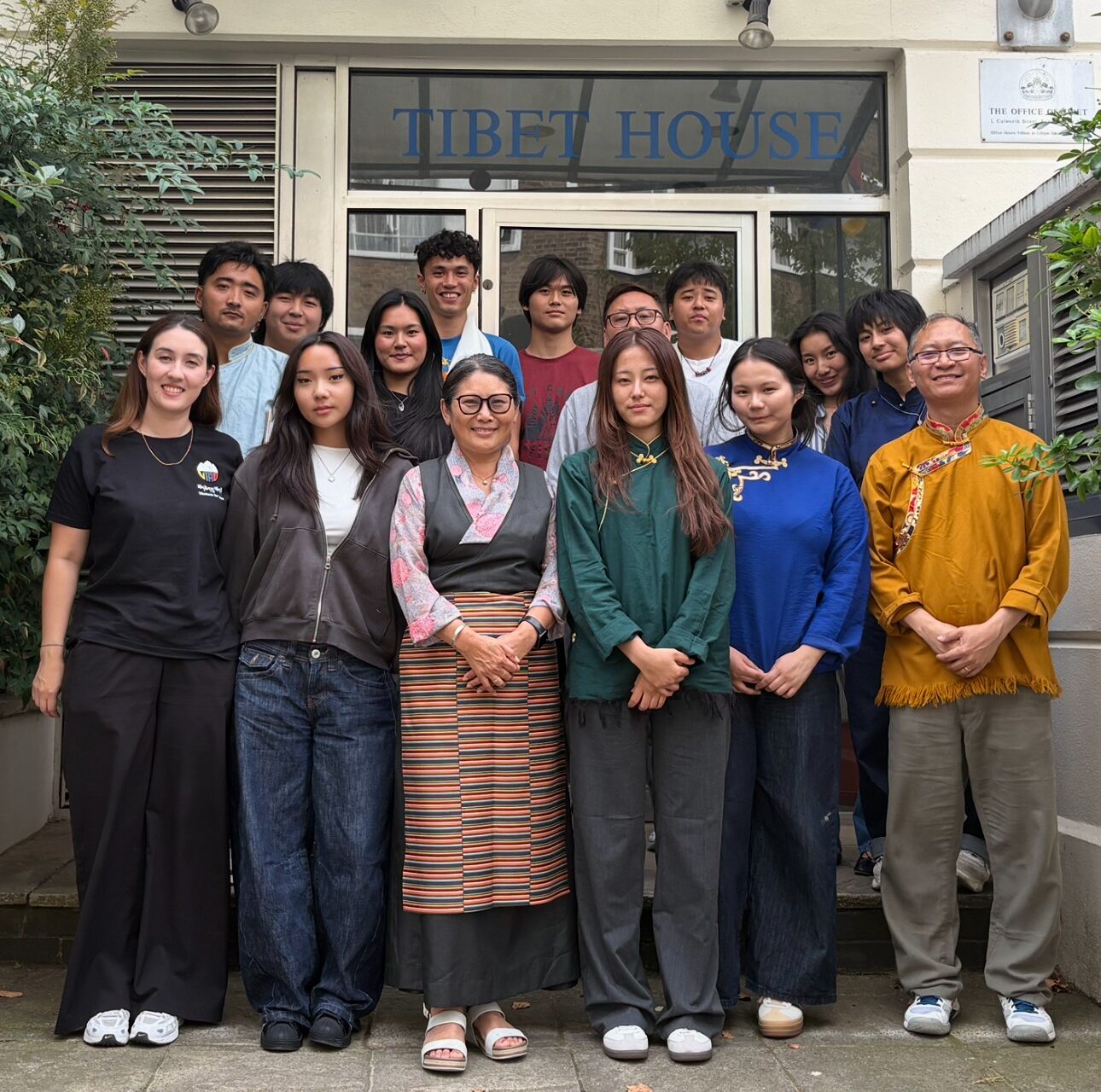
London – On Sunday, September 7, the Office of Tibet in London hosted the final phase of the Tibetan University Students Workshop 2025 at Tibet House.
Despite a city-wide tube strike, 11 Tibetan students made their way to the event—something the organisers praised as a clear sign of their professionalism, commitment, and sense of responsibility.
The workshop was designed to empower Tibetan students studying in the UK to raise awareness of Tibet among their peers. They were encouraged to create Tibet Societies at their universities, organise cultural and educational events, and strengthen their identity as young Tibetans abroad. The programme was put together by Office of Tibet intern Tenzin Chonzom, with guidance from Dr. Tara Lhamo, UK coordinator for V-TAG.
A day of inspiration and dialogue
The day began with a warm welcome from Representative Tsering Yangkey, who reminded students of the importance of speaking Tibetan both within their families and among friends. She introduced the Middle Way Policy, explaining its role as the official approach of the Tibetan Parliament-in-Exile, and encouraged students to reflect on it further.
Tenzin Norphel Wilberforce, a Cambridge graduate, shared his experience of balancing rigorous studies with meaningful extracurricular work. He later led a thoughtful discussion on the geopolitics surrounding His Holiness the Dalai Lama’s succession.
Dr. Tara Lhamo reflected on her time at the International Tibet Youth Forum and Cultural Immersion Programme in Dharamshala. She shared a moving story of a Tibetan in Tibet who had seen her in a video protesting China’s dam project in Dege. He told her that such diaspora actions gave him hope—a reminder that Tibetan voices abroad do reach those at home. She encouraged students to attend such forums in the future.
Two UK participants of that same forum, Tenzin Choenyi Tsering and Tenzin Dhadon Dorjee, echoed her message, saying the experience deepened their understanding of Tibet and strengthened their resolve to advocate for it.
Learning, sharing, and planning
Later in the day, Tenzin Chonzom introduced students to the UK’s political landscape and Tibet advocacy networks, while reminding them of His Holiness the Dalai Lama’s four principal commitments.
Secretary Tenzin Kunga followed with an overview of the democratic structure of the Central Tibetan Administration. He encouraged students to organise Tibet-related events at their universities, assuring them that the Office of Tibet would support their efforts.
Participants also watched recent BBC coverage on Tibet—one segment highlighting restrictions around His Holiness’s 90th birthday, the other capturing the exile community’s deep longing for home and freedom.
The day wrapped up with an open brainstorming session where students shared personal experiences and exchanged ideas on how to strengthen Tibet advocacy.
Commitment for the future
Before closing, each student pledged to organise at least one Tibet-related event at their university. One participant was chosen as accountability officer to help keep the momentum alive.
Handcrafted Tibetan mementos were presented to the students, and Representative Yangkey expressed heartfelt gratitude to everyone who supported both phases of the workshop—especially Dr. Tsering Topgyal of Birmingham University, who had served as the key resource person during the first phase.
Even after the formal programme ended, conversations continued late into the evening, with students and speakers staying behind at Tibet House, eager to keep exchanging ideas.
One participant described the workshop as “deeply informative and inspiring. I learned so much about the current situation in Tibet, shared my own experiences, and felt truly moved by the dedication of UK-born Tibetan youth.” Photo by tibet.net









































